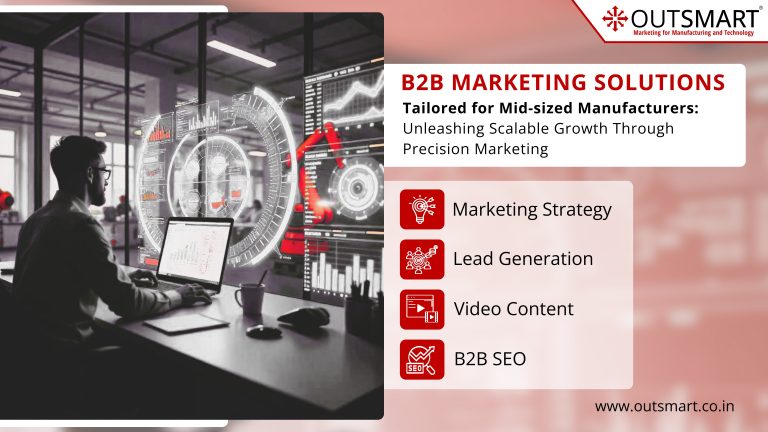Introduction
In the realm of decision-making, we often like to believe that our choices are entirely logical and rational. However, the truth is that emotions play a significant role in shaping the outcomes of our decisions. This holds even in the B2B decision-making process. While B2B transactions may involve a lengthy buyer’s journey, multiple stakeholders, and an abundance of facts and figures, prospective customers still respond to the emotions evoked by your brand and content.

The power of emotions in marketing lies in their subtlety. Simply triggering a sense of relevance, trustworthiness, and empathy towards your brand can be incredibly influential. When your audience develops positive feelings and a genuine liking for your brand, they are more inclined to make a purchase.
So, which emotions are involved in B2B marketing? The answer lies in your approach to emotional marketing.
In B2C marketing, emotions such as humour, sadness, fear, and nostalgia tend to drive responses. However, in the B2B world, your goal should be to evoke emotions that create a sense of partnership:
- Confidence
- Trust
- Reassurance
- Pride
- Excitement
- Reliability
Regardless of whether you want your prospective customers to feel excited about your brand, take pride in your products, feel frustrated with your competitors, or be reassured that your services are the right choice, B2B marketers must recognize the role of emotions in influencing buyers’ decisions.
Understanding How Emotions Impact B2B Buyers’ Decision-Making
To develop an effective B2B marketing strategy, it is crucial to understand how emotions influence the behaviour of your ideal customers. People, including your target buyers, are not as logical and rational as they might believe. Emotions underpin every purchasing decision, whether we acknowledge it or not.
B2B purchases are more complex than B2C decisions. Prospective buyers may face the risk of job security if they make the wrong purchase. Additionally, since the B2B sales process is lengthier, buyers have more time to form stronger emotional connections with their vendors and service providers. In addition, there are multiple decision-makers, and hence a more complex emotional mix! Emotions play a pivotal role in shaping how your customers think and act.
Moreover, it’s essential to remember that your customers have other options available to them. There are numerous B2B companies offering similar services or products. While highlighting cost differences and unique features can only go so far, it is the emotional connection that ultimately seals the deal. Even if your buyers believe they are making a purely logical decision, their feelings towards your company make all the difference.
7 Tips for Leveraging Emotions in Your B2B Marketing
A B2B company that neglects to incorporate emotions into its marketing, branding, and sales tactics misses out on numerous conversion opportunities. In other words, if you fail to establish an emotional connection with your prospective customers, someone else will, and they will acquire the business that you rightfully deserve.
But how can you achieve this emotional connection? Here are seven tips to help you get started:

1. See Your Buyers as People, Not Accounts
Key decision-makers in your target companies are not emotionless robots. They are individuals with hopes, fears, dreams, and aspirations. By creating a marketing campaign that acknowledges and appreciates these natural emotions, in addition to addressing their logical needs, you are more likely to resonate with them, build a strong relationship, and convert them into long-term customers.
2. Understand the Emotional State of Your Target Audience
Your B2B marketing content does not exist in isolation. The people consuming your messaging already have pre-existing feelings about your brand based on your previous marketing and advertising efforts. To successfully generate an emotional response, you must consider the emotions they are already experiencing. By understanding the emotional state of your target audience, you can determine how to evoke the desired emotions effectively. Listen to your customers, conduct surveys, interview loyal clients, and observe their interactions on social media. Use your findings to create your messaging.
3. Tell a Story
Graphs, white papers, and benefit statements are essential but lack an emotional component. Storytelling, on the other hand, can evoke emotions that breathe life into your brand. From ancient campfire tales to modern-day video clips, storytelling has always been a powerful way to elicit deep and meaningful feelings. By incorporating storytelling into your marketing, you can make your brand, products, and services more relatable and human. Interview your customers, listen to success stories, and encourage your employees to share your brand story in their own words on social media.
4. Harness the Power of Personalization:
B2B decision-makers want to feel understood and are more likely to buy from a company they believe cares about their wants and needs. Personalized content and messaging are effective ways to establish trust and connect with your prospective customers. Tailor your content to suit the individual receiving it, considering their unique role in the company and their preferred method of receiving information. By doing so, you can influence how they feel about your marketing efforts and elicit an emotional response.
5. Identify the emotion that is created by your product/service
What emotions do you want your message, content piece, or brand story to evoke? While your initial instinct might be to target a broad range of emotions, attempting to address too many at once can be counterproductive. A product or service could evoke convenience, relief, safety, reassurance, etc. Instead of concentrating on all, you need to identify one to four emotions that you want to evoke in your audience and address those specific feelings. This will help your brand stand out from the competition.
6. Take Advantage of Color Theory
The emotional impact of colour, known as colour theory, should not be underestimated. Colours have both positive and negative associations, and when you aim to elicit a particular emotional response with your messaging or content, you must consider how colour can set the tone. The emotional response to a specific colour is often influenced by cultural factors or personal experiences. For example, while yellow evokes feelings of happiness, warmth, and cheer in United States audiences, it is associated with death and mourning in other parts of the world. Understanding how colour psychology affects the emotional response of your audience will help you make informed branding and marketing decisions.
7. Use Social Proof Throughout Your Website
Social proof is a powerful tool for eliciting an emotional response from your buyers. Although it is an entirely emotional process, there is no logical reason to trust the word of a stranger. However, people rely on this information to guide them towards making the right choice. Incorporate customer reviews, testimonials, case studies, and social media posts throughout your company’s website to create a comprehensive emotional impact.
Conclusion
Emotions are a powerful force in B2B marketing. By understanding the emotional aspects of your target audience, telling engaging stories, personalising content, leveraging colour theory, and incorporating social proof, you can create an emotional connection that resonates with your prospective customers. Furthermore, cultivating emotional intelligence within your sales team can lead to stronger relationships and improved sales performance. Embrace the psychology of emotions in your B2B marketing strategy and unlock the full potential of your customer relationships.







